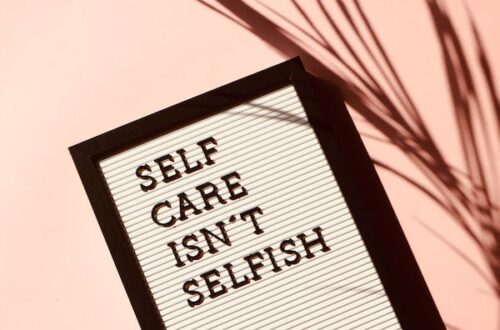
The Happiness Code: 6 Ways to Find Happiness Today, Tomorrow, and Into Your Future
“Happiness is when what you think, what you say, and what you do are in harmony.”—Mahatma Gandhi
Are you happy?

Oxford English Dictionary defines happiness as: “feeling or showing pleasure; fortunate and convenient.”
In line with this definition, other sources say happiness is an “emotional state characterized by feelings of joy, satisfaction, contentment, and fulfillment.”
If you accept the above descriptions, what principles or qualities of life would you say characterize the way to find such happiness?
What rules do happy people live by?
How do happy people behave?
Unlocking the Code
Many people experience a measure of happiness when they reach a specific goal or obtain a new item, such as a car, a house, or another thing they desire.
But how long does that surge of happiness last? Often, it is only temporary.
What’s missing?
The six qualities that promote lasting happiness include:
- Physical health and resilience
- Contentment and generosity
- Purpose in life
- Forgiveness
- Hope
- Love
Let’s now consider each of these specific measures of happiness one at a time:
Physical Health and Resilience
Tammy’s husband had had three strokes within three months. She had to drive him from the hospital to a nursing home for rehab each time it happened.
Tammy had no assistance from relatives and was under extreme stress. And stress makes you sick!
According to Dr. Jay Winner, as reported on WebMD.com, the most significant health problems induced by stress include:
- Heart disease
- Asthma
- Obesity
- Diabetes
- Depression and anxiety
- Gastrointestinal problems
- Alzheimer’s disease
- Accelerated aging
- Premature death
What could Tammy do?
Control her negative emotions.
Your mind and body are closely linked.
So, Tammy should avoid undue anxiety, unbridled anger, and other harmful emotions and focus on positive things.
Yes, you can choose how to feel.
To keep her health from deteriorating, Tammy should also, if at all possible, find a few minutes each day to exercise. Get out for a walk. Work in the garden, if she has one. Or find an exercise she can enjoy on YouTube.
Tammy has no choice but to care for her husband, but she must find ways to cope; build resilience.
Three suggested ways to help Tammy manage her difficult situation and become more resilient are; meditation, mindfulness, and prayer.
Also, getting plenty of sleep and eating healthy meals required for good health is a must!
Contentment and Generosity
Many believe that we measure happiness by wealth and assets.
Not true!
There are always cycles in the traditional financial markets.
For Instance, Bitcoin (a cryptocurrency), has lost so much of its value in the last 2-3 months that folks have heart attacks!
Perhaps these markets will recover—who knows?
But if our desires do not exceed our means, we’re spared needless anxiety and stress.
Mental health experts link striving for money to unhappiness because it leads to worry and loss of sleep.
Many people experience grief and frustration when money or investments depreciate or fail.
If this is your situation, why not adopt the attitude that you will be content with if you have food and clothing for yourself and your family?
An attitude of contentment will protect you against envy and the desire to exceed your means—less anxiety and stress.
Generosity also brings happiness.
One definition of generous: is “freely giving more than necessary or expected.”
The word “generous” has many synonyms: kindness, humanity, benevolence, unselfishness, openhandedness, and on and on.
And if you’re familiar with the Christian Bible, you have undoubtedly read: “There is more happiness in giving than there is in receiving.” (Acts 20:35).
Generous people put people before things and value good relationships with others above material riches.
Generous people are happy people.
“It’s enough to indulge and to be selfish but true happiness is really when you start giving back.”—Adrian Grenier
Purpose in Life
Humans are unique in many ways.
We have extraordinary brains, though not the most giant brains in the world.
We can think symbolically and reason.
We write we paint, we create, and humans can control fire!
And only humans think about life’s big questions: Why are we here? What is the purpose of life?
William McDougall, a professor of psychology, wrote: “To keep alive and mentally healthy, we need something to live for.”
Another professor of psychology, Carol Ryff, agrees: “People whose lives have purpose show widespread health benefits—they have reduced risk for cognitive [mental] impairment … reduced risk for cardiovascular disease, better recovery from stroke … and, relatedly they live longer.”
There are health benefits to having a purpose.
- Fewer strokes and heart attacks
- Better sleep
- Lower risk of dementia and disabilities
Not sure about your purpose?
Start with a self-assessment. There are many formulas on the Web that can help you discover your life’s purpose.
Be clear about your life purpose. You were born with an inner guidance that tells you when you’re on or off course by the amount of joy you are experiencing.
Forgiveness
To forgive means to “stop feeling angry or resentful towards (someone) for an offense or mistake.”—Oxford English Dictionary
Forgiveness means pardoning an offender and letting go of anger, resentment, and thoughts of revenge; it does not mean condoning a wrong, minimizing, or pretending it did not happen.
For instance, Rhonda and her brother Darin had agreed to care equally for their seriously ill 78-year-old mother.
Unfortunately, this is not what happened.
Rhonda said, “I’m so frustrated. I do everything for my mother, and my brother does nothing! For example, my brother said he mowed the lawn and called pest control so they could get ready to sell the house.
“Pest control sent me a picture of the yard. My brother had not mowed the lawn! My brother is unreliable and irresponsible! Yet, he is my mother’s pride and joy. She dotes on him and criticizes me!
“How can I cope!?”
To say that Rhonda resents her brother is putting it mildly. She could also be jealous of him. She seems to feel that her brother gets the love, and she gets the grind of caring for their mother’s needs.
Rhonda must work to overcome and control such feelings. She must work to remain kind and considerate—no matter what.
The value of unity and peace in one’s family is worth whatever it may cost.
Being willing to forgive, for instance, makes us more loving and lovable.
Forgiveness reflects an understanding that we all err in word and deed.
According to Mayo Clinic, forgiveness leads to:
- Healthier relationships, including feelings of empathy, understanding, and compassion for others
- Improved mental and spiritual well-being
- Less anxiety, stress, and hostility
- Fewer symptoms of depression
- Improved heart health
- Improved self-esteem
And forgive yourself.
Self-forgiveness is critical to your mental health but can be challenging to achieve.
No one is perfect; you will make mistakes.
If you hurt someone, take responsibility and be quick to apologize.
Learn from your errors, and so you are less likely to repeat them.
Be patient with yourself.
Here are a few self-forgiveness affirmations I found on the Web:
- I acknowledge my faults and forgive myself completely
- I release the heavy burden of shame, guilt, self-hatred, and self-judgment
- I let go of all urges to criticize myself
- Self-hatred does not serve me
You must learn to forgive yourself.
Hope
“Hope is a match in a dark tunnel, a moment of light, just enough to reveal the path ahead and ultimately the way out.”—Dr. Judith Rich
On October 27, 2020, I wrote a blog article that I posted to my website entitled, “A Story of Hope and Optimism: What It Means for You.”
In the article, I quoted Charles Richard Snyder, the psychologist who developed the hope theory: “A rainbow is a prism that sends shards of multicolored light in various directions. It lifts our spirits and makes us think of what is possible. Hope is the same—a personal rainbow of the mind.”
However, hope and optimism are not the same things.
Optimism means “most likely to lead to a favorable outcome.”—Oxford English Dictionary
An example would be: “My workday started stressfully, but I believe it could only get better.”
The book Hope in the Age of Anxiety states: “Hope is an essential element of our spiritual lifeblood. And it is the best medicine for overcoming feelings of helplessness, alienation, and fear.”
The opposite of hope is fear: “An unpleasant emotion caused by the threat of danger, pain, or harm.”—Oxford English Dictionary
Our need for hope is reflected in everyday life.
What we hope for:
- An end to poverty and hunger; ample food for all
- An end to violence against women and children
- An end to warfare
- A more open, inclusive, and fair world for all people
- Clean water for all
Undoubtedly, you can think of other needs for which to hope.
“Hope is the dream of the waking man.”—Aristotle
Love
“One word frees us of all weight and pain in life—that word is love.”—Sophocles
Definition of love: noun, “A strong feeling of affection”; verb, “Loves, loving, loved.”—Oxford English Dictionary
Humans crave love, and therefore love is essential to mental health and happiness.
One Bible writer described love this way:
“Love is patient and kind. It bears all things, hopes all things, endures all things. Love never fails.”—1 Corinthians 13:4-8
When self-sacrificing love exists between family members, they all greatly benefit.
A young woman named Melissa, whose mother was critically ill and house bond, shared:
“Just Mom and me today hanging at home. I cooked dinner for us, and we’re going to watch the Colorado Rockies on TV.
“I was invited to quite a few things with friends, and I was a little bitter, but I’m making the best of it. My sisters couldn’t be bothered to visit. I would do anything for my mom, and I know she won’t be here forever.
“Taking care of Mom makes me happy.”
How beautiful.
Yes, love promotes happiness because:
- It helps us to show sincere concern for the welfare and benefit of others
- It can grow stronger over time
- It gives strength and resilience to families and friendships
Choose to act the love.
And find Happiness
Finally
In this article, you have discovered the Happiness Code.
When troubles and misery come your way (and they will), you now know the rules and principles that, if followed, will for sure lift you up.
- Take care of your physical health and strengthen your resilience.
- Learn contentment and be generous
- Find your purpose in life
- Practice forgiveness
- Have hope—always
- Act the love
These six practices are the way to happiness.
“Try to make at least one person happy every day. If you cannot do a kind deed, speak a kind word. If you cannot speak a kind word, think a kind thought. Count up, if you can, the treasure of happiness that you would dispense in a week, in a year, in a lifetime!”—Lawrence G. Lovasik




